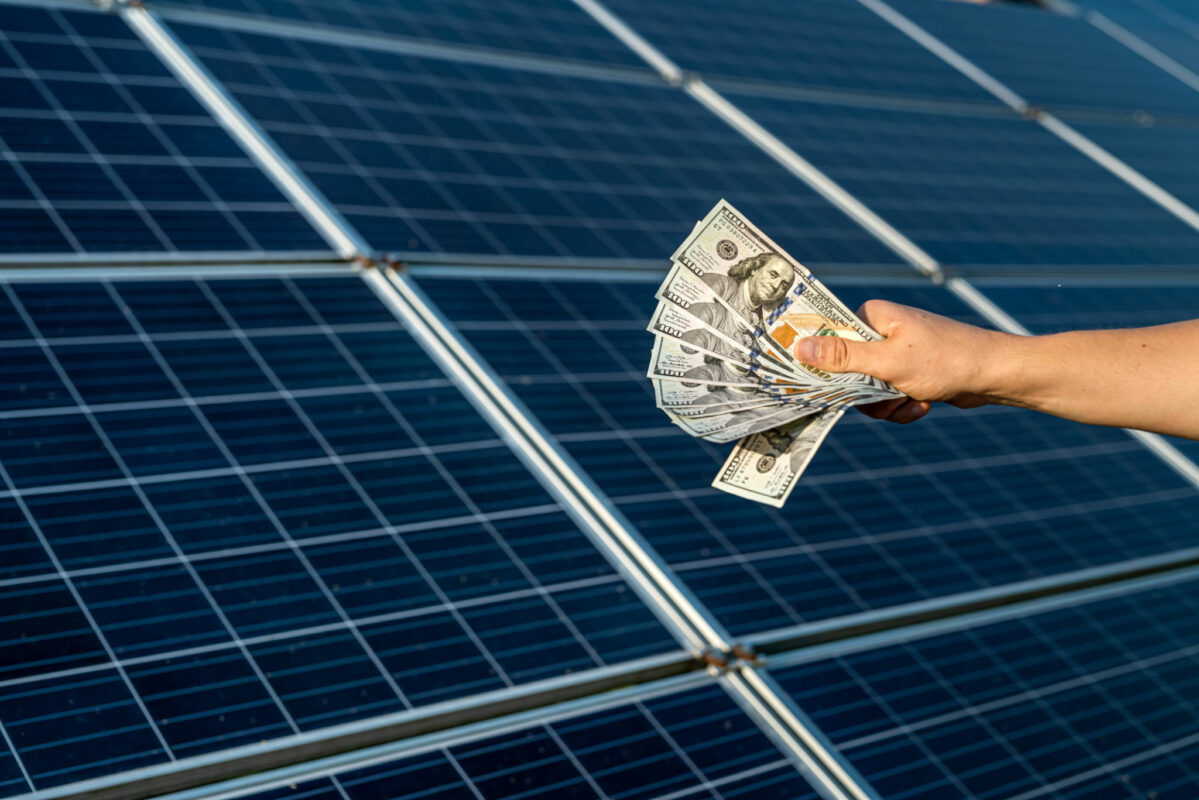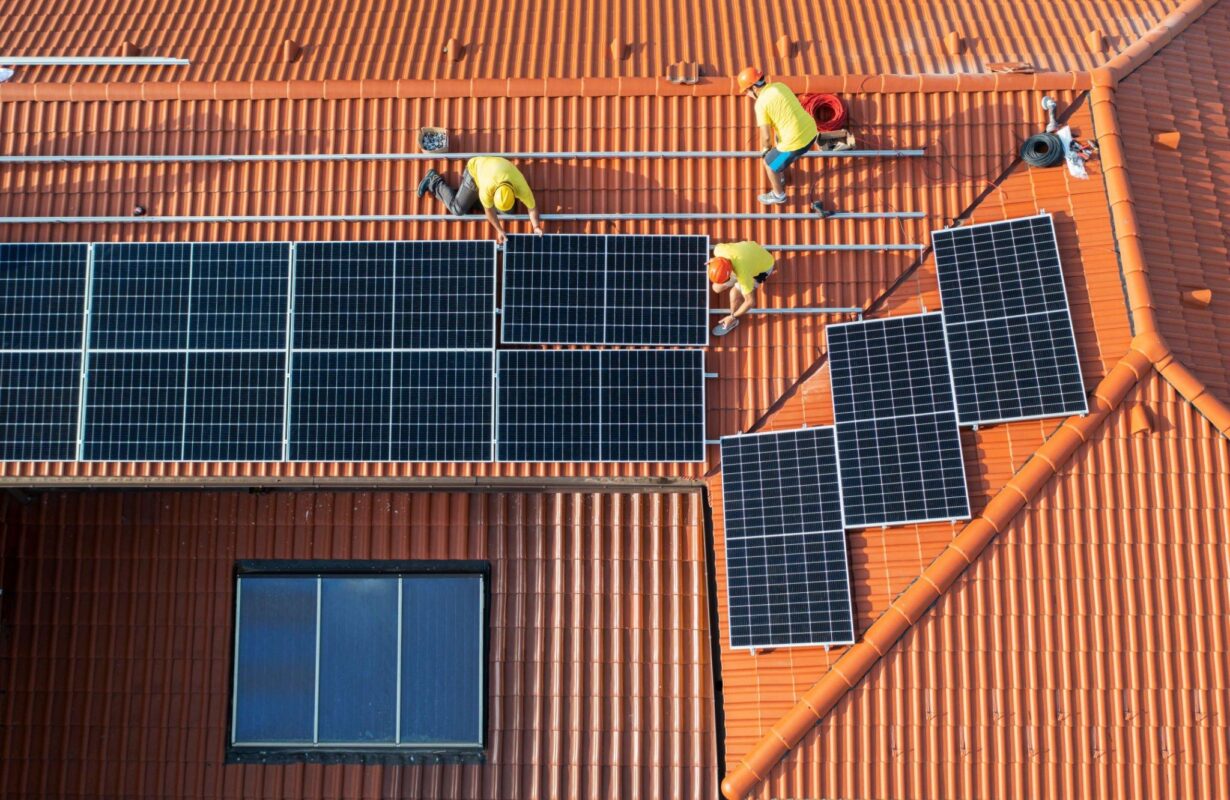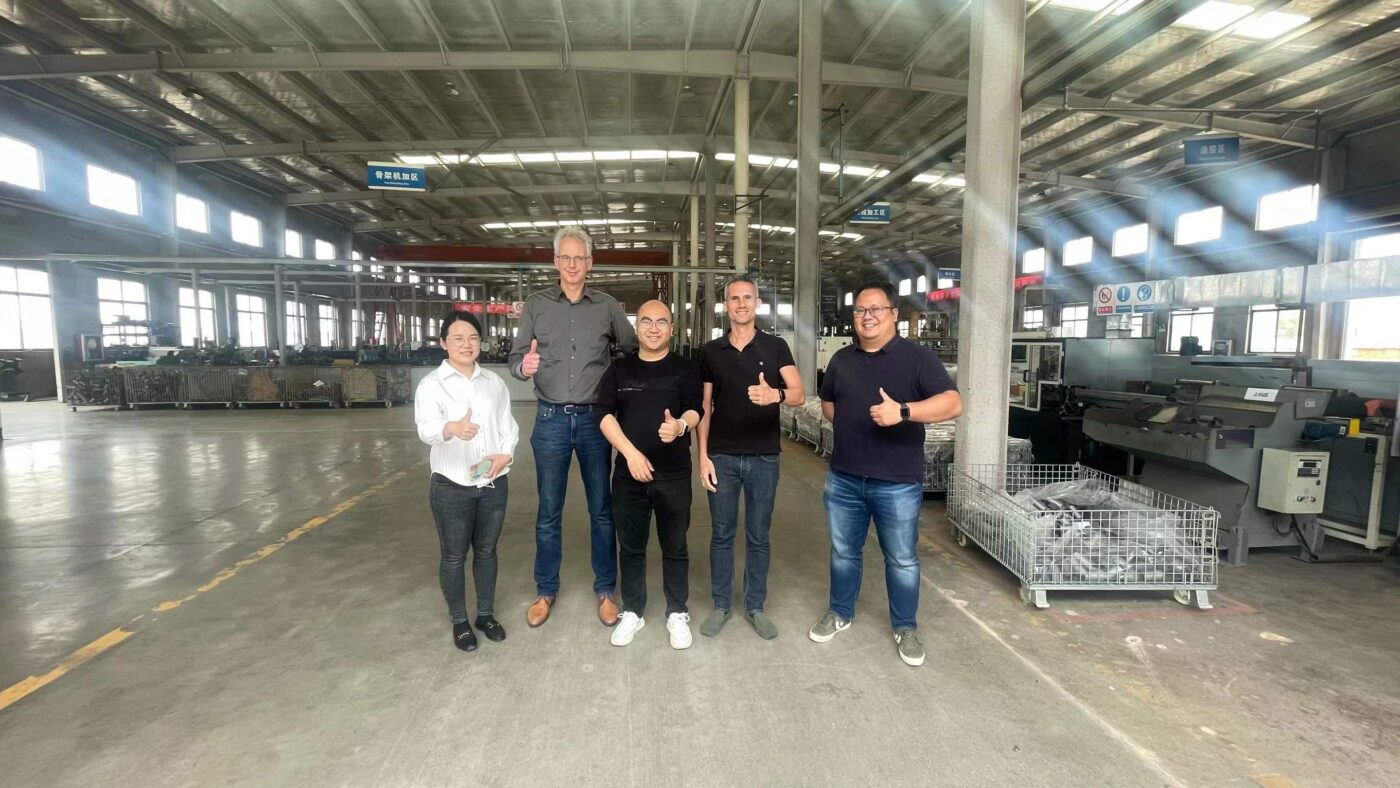Para ayudarlo a comprender mejor el costo del panel solar, Realizamos un estudio en profundidad de las tendencias futuras de la energía solar en 2024. Siga leyendo para saber cómo factores como el lugar donde vive, tus necesidades energéticas, y el tipo de paneles solares afectan el coste final de un sistema solar.

Factores que afectan el costo del panel solar
Ubicación
Su ubicación geográfica es un factor importante en el costo de los paneles solares. el clima, condiciones de sol, Los subsidios de políticas y los factores del mercado en diferentes ubicaciones geográficas afectarán el costo de sus paneles solares..
Clima
Las condiciones climáticas también pueden afectar directamente al coste de los paneles solares.. Por ejemplo, en condiciones climáticas extremas, Los paneles solares requieren diseños y materiales más duraderos., lo que conducirá a mayores costos. En cambio, Las condiciones climáticas más suaves ayudan a reducir los costos..
Condiciones de luz solar
Suponiendo que vives en un lugar soleado, es posible que desee considerar la posibilidad de utilizar energía solar. Las condiciones de mayor luz solar generalmente aumentan la capacidad de producción de los paneles solares., lo que te permitirá cubrir tus necesidades energéticas utilizando menos dinero.
Políticas y subsidios
Las políticas de incentivos y subsidios de los diferentes gobiernos regionales varían. Algunas áreas ofrecerán créditos fiscales o subsidios para su proyecto., reduciendo el coste neto de su sistema solar, lo que afectará directamente el costo de sus paneles solares.
Factores de mercado
Si vives en un lugar donde los costos de la energía tradicional son altos, como California, Hawai, y nueva york, Es posible que también quieras considerar la posibilidad de utilizar energía solar., que puede ayudarle a ahorrar aún más en sus facturas de energía.
Costos de envío e instalación
Por lo general, también debemos considerar los costos de envío e instalación de los paneles solares.. Suponiendo que vives en un área más remota, sus costos de transporte e instalación serán más altos que aquellos que viven en áreas con transporte conveniente. Este también es un factor importante que afecta indirectamente el costo de sus paneles solares..
Necesidades energéticas
La demanda de energía es un factor clave en el costo de los paneles solares y afectará directamente el tamaño., complejidad, y coste final de su sistema de paneles solares. Las mayores demandas de energía suelen requerir sistemas de paneles solares más grandes, con un aumento correspondiente en la complejidad del sistema solar. También implica el coste añadido de más componentes además de los paneles solares., como inversores, baterias, Mayores niveles de ingeniería y soluciones técnicas., aumentando así el coste total final de su proyecto solar.
Opciones de compra
Los métodos de compra incluyen la compra directa., arrendamiento y propiedad de terceros.
Generalmente hablando, La opción de compra más rentable es comprar directamente.. Aunque el coste inicial es mayor, usted será dueño absoluto de su sistema y no tendrá que pagar intereses sobre el préstamo.
A menudo porque el costo es demasiado alto., muchos usuarios no pueden elegir la opción de comprar directamente, así que puedes considerar otra buena opción, cuál es el modelo de propiedad de terceros. Inicialmente necesitarás invertir algo de dinero en tu sistema y luego podrás ser propietario de tus paneles y beneficiarte del ahorro de energía.. Cuanto más dinero deposites durante este período, cuanto menos intereses pagues.
La última opción es el arrendamiento., donde no eres propietario de los paneles y solo pagas una tarifa de alquiler fija de forma regular. Puede reducir sus costos iniciales, pero la desventaja es que es posible que no disfrutes de todos los beneficios del sistema.
Tipo de panel solar
Típicamente, Hay tres tipos comunes de paneles solares.: película delgada, monocristalino, y policristalino.
Los paneles solares de película delgada suelen utilizar materiales más delgados y son más baratos de fabricar., pero también son menos eficientes, Requiere más superficie para producir la misma cantidad de electricidad., potencialmente resultando en mayores costos.
Los paneles de silicio monocristalino suelen tener un coste inicial más elevado, pero su eficiencia y rendimiento también son relativamente altos. en la misma zona, Los paneles de silicio monocristalino pueden generar más energía..
En comparación con las células de silicio monocristalino., Los paneles de silicio policristalino tienen menores costos de producción y menor eficiencia.. Sin embargo, en algunos proyectos con presupuestos limitados, Los paneles de silicio policristalino son una buena opción económica..

Estadísticas de costos de paneles solares
Costo promedio del panel solar
| COSTO PROMEDIO DEL PANEL SOLAR | |
| Costo promedio | $16,000 |
| Costo más bajo | $4,500 |
| Costo más alto | $36,000 |
Costo del panel solar por estado
Los costos de los paneles solares varían de un estado a otro, con incentivos gubernamentales, La geografía y la demanda del mercado son todos factores que influyen.. Los estados líderes como California pueden ser más competitivos en costos y beneficios, mientras que otros estados pueden centrarse en ofrecer más incentivos. Comprender los costos de los paneles solares por estado puede ayudarlo a tomar decisiones energéticas más inteligentes.
Costo del panel solar por tipo
| TIPO DE PANEL | COSTO POR VATIO | 6COSTO DEL SISTEMA EN KW |
| monocristalino | $1.00 - $1.50 | $6,000 - $9,000 |
| Policristalino | $0.90 - $1.00 | $5,400 - $6,000 |
| Película delgada | $1.00 - $1.50 | $6,000 - $9,000 |
Costo promedio por tamaño del sistema solar
| TAMAÑO DEL SISTEMA SOLAR | PRODUCCIÓN ANUAL PROMEDIO DEL SISTEMA* (kWh) | COSTO PROMEDIO ANTES DEL CRÉDITO TRIBUTARIO FEDERAL | COSTO PROMEDIO DESPUÉS DEL CRÉDITO TRIBUTARIO FEDERAL (30%) |
| 6kilovatios | 8,000 - 10,000 | $6,600 - $11,400 | $4,600 - $8,000 |
| 8kilovatios | 10,500 - 13,300 | $8,800 - $15,200 | $6,200 - $10,600 |
| 10kilovatios | 13,300 - 16,700 | $11,000 - $19,000 | $7,700 - $13,300 |
| 12kilovatios | 16,000 - 20,000 | $13,200 - $22,800 | $9,200 - $16,000 |
Costo adicional del panel solar a considerar
Cuando especifica un presupuesto de costos para su sistema de paneles solares, También debe considerar los costos adicionales del panel solar.. Por ejemplo, mantenimiento, limpieza y reparaciones, etc., Son todos los costos necesarios en las últimas etapas del proyecto..
Mantener
Generalmente hablando, Se requiere mantenimiento del panel solar al menos dos veces al año para hacer frente a posibles problemas., y el número exacto de veces depende del usuario. Costos únicos de mantenimiento entre $140 y $180, dependiendo del fabricante o mantenedor profesional.
Limpieza
Los costos de limpieza de los paneles solares son aproximadamente $25 por panel, y necesitarás limpiar tus paneles solares una o dos veces al año. si es seguro, También puedes optar por hacerlo tú mismo., que sólo te costará aproximadamente $100 siempre.
Sistema de vigilancia
Más adelante en el proyecto, Es posible que necesite monitorear y rastrear su sistema solar., que cuesta entre $0 y $400. Por supuesto, Algunas empresas proporcionarán monitoreo de seguimiento fotovoltaico gratuito., como SolarEdge, pero en la mayoría de los casos tendrás que proporcionar ciertos fondos tú mismo.
Reparación de paneles solares
Los costos de reparación de paneles solares promedian entre $300 y $1,300, dependiendo del problema de reparación específico. Pero en términos generales, la mayoría de las empresas de instalación y paneles solares ofrecen garantías, lo que puede ayudar a compensar parte del costo.
Cómo ahorrar dinero
Incentivos solares federales
El crédito fiscal federal por inversión solar es un crédito fiscal equivalente a 30% del coste total de un sistema de paneles solares. Todos los propietarios de viviendas que instalen paneles solares en Estados Unidos son elegibles para este crédito, lo que reduce efectivamente su obligación tributaria federal sobre la renta.
Pero si eliges arrendar tus paneles solares, no podrá obtener este crédito fiscal. Sólo puedes solicitar aprovechar este beneficio fiscal si eres propietario de paneles solares. Actualmente, Se espera que el programa de crédito caiga a 26% en 2033, luego a 22% en 2034, antes de expirar completamente en 2035. Por lo tanto, Aprovechar las oportunidades actuales de crédito fiscal es especialmente importante para los propietarios de viviendas que instalen paneles solares en los próximos años..
Incentivos solares estatales
Además de los incentivos federales, Muchos estados ofrecen incentivos como créditos fiscales., reembolso, y subvenciones para instalación solar. Los residentes y las empresas pueden deducir una parte de sus costos de energía solar de sus impuestos estatales sobre la renta., y algunos estados también ofrecen reembolsos o subvenciones para ayudar a compensar el costo inicial de los sistemas solares.. Puede obtener información sobre estas políticas en la página web de su gobierno local..
Además, cuarenta y un estados y Washington, CORRIENTE CONTINUA., tener políticas de medición neta exigidas por el estado, que permiten a los propietarios de sistemas solares vender el exceso de electricidad generada por sus paneles solares a empresas de servicios públicos para obtener créditos de facturación., que puede reducir significativamente las facturas de electricidad y mejorar la economía de la energía solar.
Para promover la inclusión, Algunos estados también ofrecen apoyo financiero adicional o concesiones a países de bajos ingresos.- y hogares de ingresos moderados, Con el objetivo de hacer que la energía limpia esté más disponible.
Conclusión
Del análisis de factores de costos a estrategias de ahorro de dinero, Nos sumergimos profundamente en el futuro de la energía solar.. Los paneles solares son líderes en energía sostenible del futuro, y GYCX Solar se compromete a brindarle soluciones solares eficientes y confiables.. Únase a nosotros y avance hacia un futuro verde. Contáctanos para comenzar tu viaje hacia la energía limpia.

Preguntas más frecuentes
¿La energía solar será más barata en 2024?
Generalmente hablando, Es probable que el costo de fabricación de paneles solares continúe cayendo a medida que avance la tecnología solar y se expanda el mercado., pero las continuas interrupciones de la cadena de suministro y la inflación de 2020 a 2022 provocó que los precios de la energía solar aumentaran ligeramente. Sin embargo, a medida que estos problemas se resuelven lentamente, Se espera que los costos solares continúen su tendencia a la baja a través de 2024 y más allá. Además, Las políticas gubernamentales nacionales y regionales para apoyar la industria solar también pueden tener un impacto en los costos..
¿La energía solar aumentará el valor de una casa??
Los sistemas solares pueden reducir las facturas de energía de los propietarios, y los compradores potenciales pueden estar interesados en los ahorros, lo que aumenta el valor de la vivienda. Además, Los gobiernos en algunas áreas ofrecen incentivos como créditos fiscales., que puede proporcionar incentivos financieros adicionales para aumentar el valor de la vivienda. Según la investigación de Zillow, casas con sistemas solares se venden por 4.1% más que hogares sin ellos.
¿Cuánto tiempo tardarán los costos de los paneles solares en alcanzar el punto de equilibrio??
El tiempo que tarda un sistema de paneles solares en alcanzar el punto de equilibrio, también conocido como período de recuperación. Según nuestra investigación, El período de recuperación promedio de un sistema de paneles solares en los Estados Unidos es 8.5 años, y la vida útil típica de un sistema de paneles solares es al menos 25 años.
El Laboratorio Nacional de Energías Renovables estima que el tiempo de recuperación de la inversión solar puede ser incluso más corto, en sólo cuatro años para un sistema de panel solar monocristalino estándar. Entonces, si su sistema de paneles solares es capaz de generar electricidad para 25 años, después del período de recuperación, Disfrutarás de los beneficios de la energía limpia gratuita para 21 años.
¿Cuánto duran los paneles solares??
Generalmente hablando, los paneles solares duran 25 a 30 años, pero algunos paneles pueden durar 40 años o más, y la mayoría de las empresas solares ofrecen una garantía de panel de 25 años..
¿Cuánto cuesta un sistema solar de 6kW??
El costo es aproximadamente $6,600 a $11,400, y si calificas, recibirás un 30% crédito fiscal. Puede investigar sus incentivos solares locales para ver para qué créditos y reembolsos puede ser elegible.

Pingback: Cómo ahorrar en facturas de electricidad con energía solar 2024 - Soluciones de energía solar inteligente GYCX